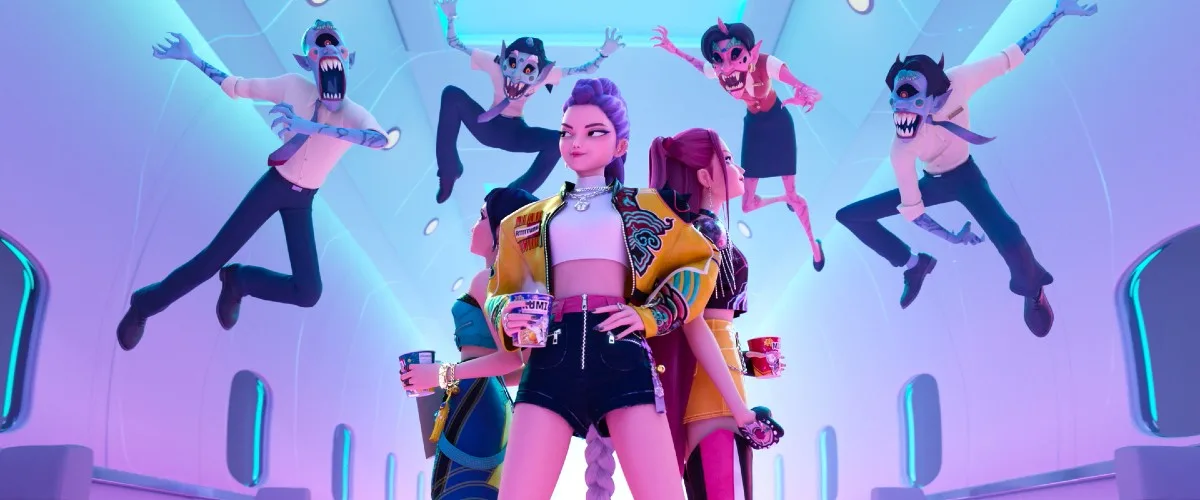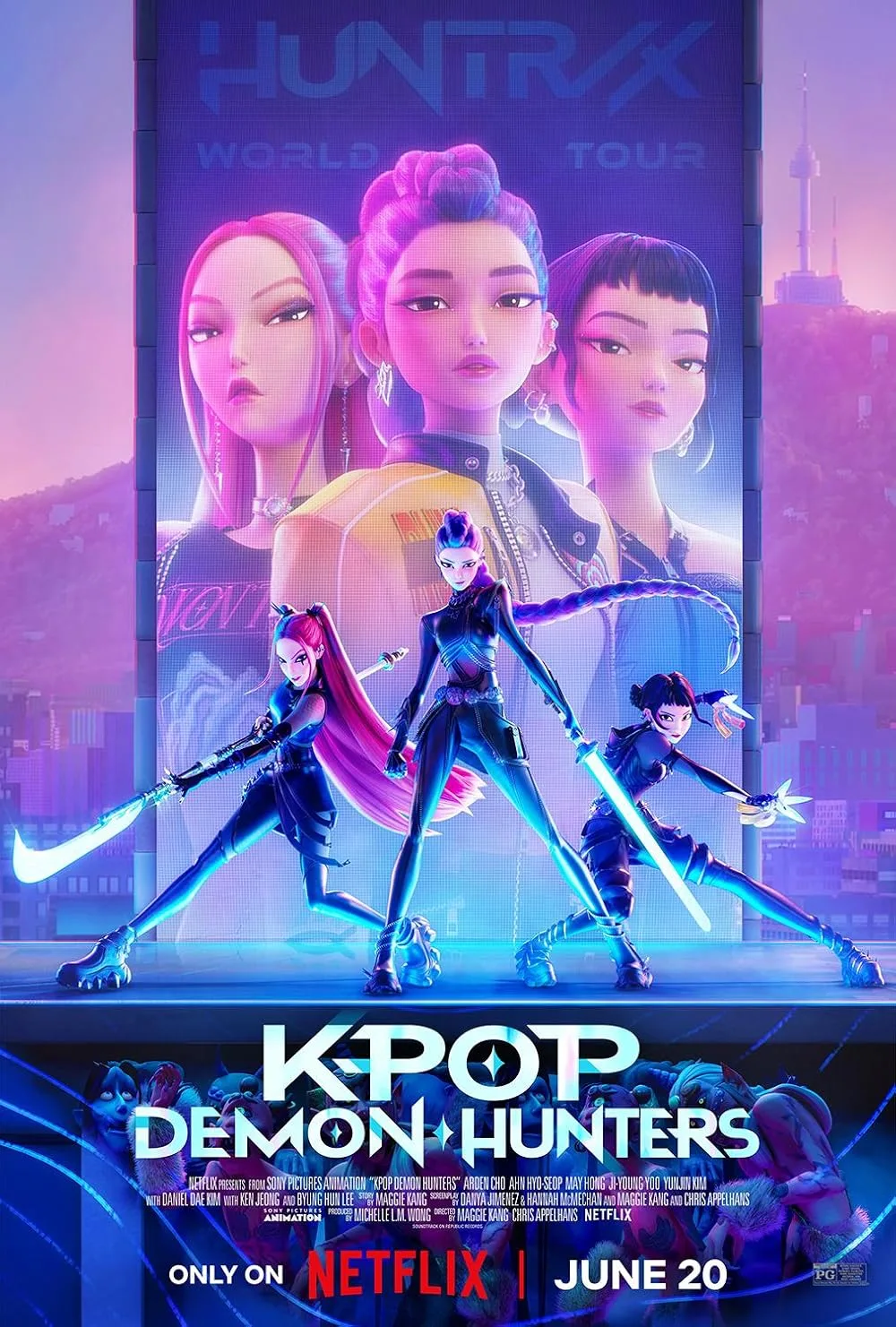First, a sneak peek behind the curtain. When our planned review of Netflix’s “KPop Demon Hunters” fell through, we considered whether we needed to reassign it and presumed that it was one of many lackluster animated streaming releases that our critical beat could skip. We were wrong.
Since its release in mid-June, this Sony Animation adventure flick has become one of the biggest original hits in the history of the streaming service. As of this writing, it sits comfortably right behind “Happy Gilmore 2” and its predecessor, which would be incredible if it had come out three days ago but is far more remarkable for a film that’s over a month old. Nothing stays long in the spotlight on Netflix because of the speed of its revolving door of content, so why has “KPop Demon Hunters” become immortal? Fans are clearly watching it on repeat, attracted to its catchy tunes, inventive visuals, and personal resonance. More than just another lazy animated streaming project, “KPop Demon Hunters” is emotionally empowering in ways that have made it a cross-demo hit.
“KPop Demon Hunters” opens with a burst of energy, introducing viewers to the hit girl group Huntr/x: Rumi (Arden Cho), Mira (May Hong), and Zoey (Ji-young Yoo). One of the most popular trios in the world, Huntr/x rocks the charts on stage and destroys demons when they’re off. This blend of “Charlie’s Angels” and “Buffy the Vampire Slayer” has a familiar structure, but the four credited screenwriters are careful to ground it in Korean mythology too. Huntr/x maintains something called the Honmoon, a protection against a centuries-old demon ruler known as Gwi-Ma, who has a legion of otherworldly creatures to unleash on humanity. The excellent opening scenes of “KDH” feature Huntr/x combating demons who try to keep them from performing a show that night—of course, they vanquish their foes and hit the dance choreography too.
Tensions rise when a demon named Jinu (Ahn Hyo-seop) convinces Gwi-Ma to let him form a boy K-pop band named the Saja Boys. Of course, they become overnight superstars—it can be entertainingly difficult to determine whether or not this movie thinks actual K-pop is a tool of the Devil—exposing some of the celebrity weaknesses of Huntr/x in the process.
The main arc of “KPop Demon Hunters” centers on Rumi’s secret that she’s part-demon, something she’s withheld from her BFF bandmates. Being a demon himself, Jinu discovers Rumi’s “patterns,” revealing that he has a human past he’s trying to erase. Both of these characters are burdened by shame regarding their true identities, which is a perfect thematic marriage with pop music, which both thrives on manufactured personalities and taps into relatable insecurities in the hearts of its biggest fans. A great pop line like “I should have let the jagged edges meet the light instead” sounds pulled right from the songwriting book of dozens of current pop queens.
To use a basketball phrase, “KPop Demon Hunters” works best when it’s “playing with pace.” While critics often deride animated films that feel too hyperactive, K-pop demon hunting requires speed, and the film is at its most enjoyable when it’s bursting with visual energy, buoyed by strong pop songs like “Golden” and “Takedown,” which have already become streaming hits (the soundtrack is the bestselling for an animated film since 2021’s “Encanto”). When the movie slows down, it loses some of its magic, primarily because it has too many characters over-explain their emotional crutches and what they need to do to overcome them. It becomes surprisingly repetitive, given its brief runtime, and there’s a version of this film that trusts its audience a bit more, allowing the music or visuals to do the heavy lifting instead of always relying on dialogue to explain the intention. That could easily come in the sequel, which is reportedly already being considered.
Of course, the thematic depth and catchy tunes wouldn’t matter if “KPop Demon Hunters” didn’t look fantastic. Inspired by fluid animation that owes as much to comic panels as it does to anime (the “Spider-verse” comparisons feel apt), the artwork of “KDH” is dynamic, elevating the storytelling and amplifying the themes in a manner that is essential to why the film has been connecting so strongly. Most of all, “KPop Demon Hunters” feels both familiar and fresh, kind of like a song you’re hearing for the first time, but you somehow know the words. Those are the hits.




















